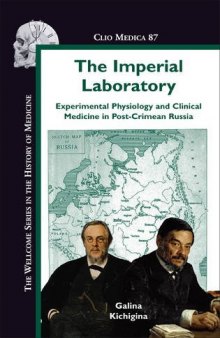 جزییات کتاب
جزییات کتاب
Following a humiliating defeat in the Crimean War, the Russian Empire found herself exposed due to major deficiencies in her infrastructure. To gain from European scientific, technical and educational advancements, the Russian Government began to permit studies abroad and relaxed censorship, which brought a new flood of literature into the country. These measures enormously facilitated the growth of Russian science, medicine and education in the late nineteenth century, taking the Empire into a fascinating era of laboratory research, a new cultural and intellectual tradition. The Imperial Laboratory tells the story of the lives and studies of the leading Russian and German clinician-experimenters who played critical roles in the integration of physics and chemistry into physiology and clinical medicine. A principal theme is the major transformations undergone in military medicine and education. Using a wide range of Russian and German primary sources, this book offers a unique English-language insight into Russian physiology and medicine that will be of interest to both historians and doctors, as well as anyone interested in Russian science and culture. Galina Kichigina has taught at Moscow Medical Academy and at University of Toronto. She has co-authored a chapter on history of cardiovascular physiology and on modern concepts of ventricular fibrillation in I. Efimov, et al. (eds) Cardiac Bioelectric Therapy (New York: Springer, 2008) and is currently working on a history of cardiology and molecular medicine.



 دانلود کتاب
دانلود کتاب

 جزییات کتاب
جزییات کتاب





 این کتاب رو مطالعه کردید؟ نظر شما چیست؟
این کتاب رو مطالعه کردید؟ نظر شما چیست؟
